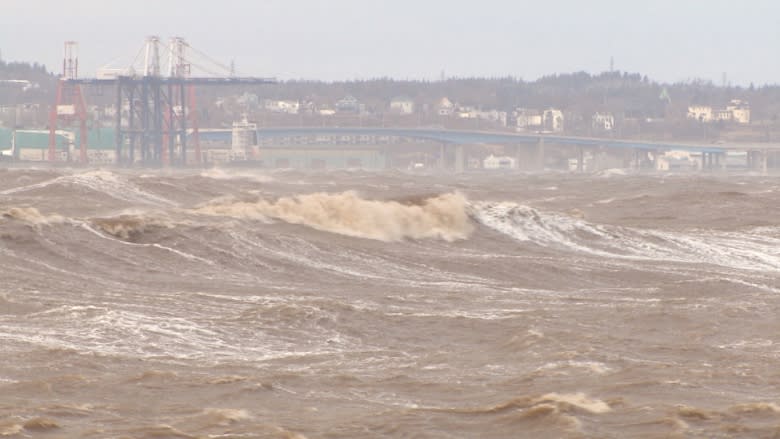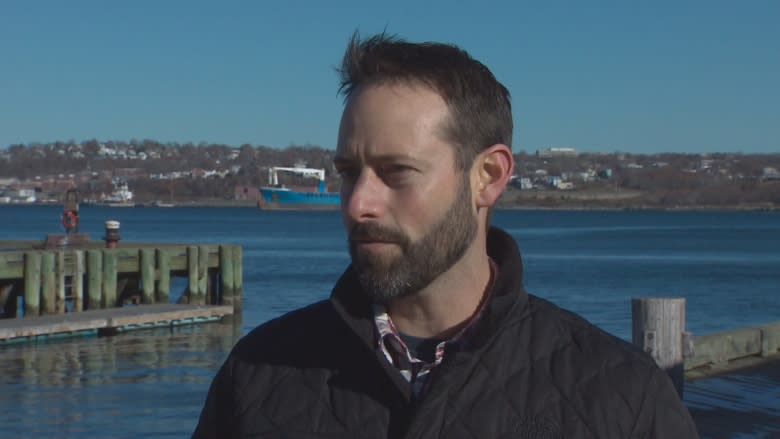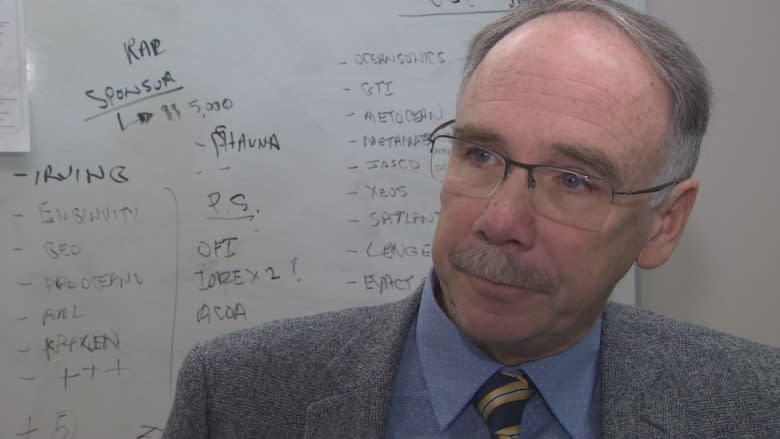Why backers say Ocean Supercluster will sail off with innovation bucks
It's deadline day for Atlantic Canada's lone bid in the federal government competition for $950 million in innovation funding.
Some of the biggest players in the region's ocean economy have joined forces to come up with the Ocean Supercluster proposal, which aims to find solutions to problems extracting resources from the ocean.
The Canada-wide competition is an attempt to drive economic growth by backing innovation in sectors where government can expect "exceptional performance" and an "outsized impact on job creation and GDP."
Silicon Valley is the model.
"We see tremendous opportunity in collaboration," says Chris Huskilson, CEO of Halifax-based energy company Emera, which is one of the core investors in the Ocean Supercluster bid.
"Things that are needed in the capture fishery, things that are needed in the oil and gas are very, very similar to things that are needed in ocean [renewable] energy," he told CBC News.
Big opportunities, big challenges
Jim Hanlon is the CEO of the new Nova Scotia not-for-profit Centre for Ocean Ventures and Entrepreneurship, which has helped quarterback the bid.
He said Emera is a good example of a company that has both big opportunities and big challenges in the ocean sector.
Emera was first in the water trying to generate renewable electricity from the powerful tidal currents that roar through the Bay of Fundy twice a day. But the experiment hasn't always been smooth sailing.
The company's 1,000-tonne experimental turbine had to be pulled from the Minas Passage earlier this year for repairs and adjustments.
Hanlon said Emera's involvement in the supercluster revolves around developing technologies related to the tidal resources in the Bay of Fundy.
"All to the purpose of scaling it, to bring it from what it is now, which is a wonderful experimental site … to full production within a decade," he says.
How it works
Four core investors are committing $15 million each as part of the Ocean Supercluster: Emera, Clearwater Seafoods, Petroleum Research Newfoundland and Labrador — which is made up of the five oil companies operating offshore Newfoundland and Labrador — and Cuna del Mar, an open ocean aquaculture promoter.
Other region powerhouses involved are J.D. Irving and Cooke Seafood.
In all, companies participating in the Ocean Supercluster bid have pledged to spend $125 million.
That will be matched dollar for dollar by the federal government if the bid is one of the three to five winning proposals selected by Ottawa.
Core investors must agree on a proposal before it can be put forward to Ottawa for matching funding.
Small business perspective
Backers of the Ocean Supercluster maintain that a lot of the money will go to small- and medium-sized businesses in Atlantic Canada who will be hired to provide solutions.
Jamie Sangster of Leeway Marine owns one of those small businesses.
The ex-navy member and his partners bought an old Canadian Coast Guard vessel to hire out.
Sangster said the Ocean Supercluster could provide opportunities to companies like his to be innovative and develop solutions.
"Perhaps we solve the problem and at the same time create an innovative product that we can take global," he said.
Developing the supercluster proposal has created something of a road map, too, he said.
"We have some good leaders in the ocean sector here in Atlantic Canada who have sat down and said, 'Right, this is where the opportunities are probably going to exist in the future.' To have a framework as a small business is hugely invaluable."
What are the odds of an Atlantic win?
Hanlon said the goal of the Ocean Supercluster bid is to triple the current value of the ocean economy in Canada by 2050. That means increasing it from $30 billion in direct and indirect GDP in 2013 to $90 billion, and doubling employment from 60,000 jobs to 120,000 jobs.
In October, the Ocean Supercluster made a short list of nine from 53 initial applicants.
"Assuming we win — and I think we will — the opportunity in my mind is once in a lifetime," said Hanlon. "It's an opportunity to bring together, finally, what is the core strength of the Atlantic economy, which is oceans."





